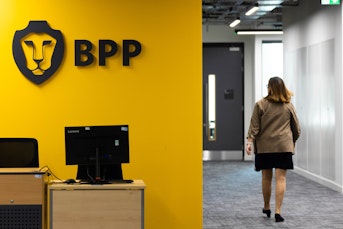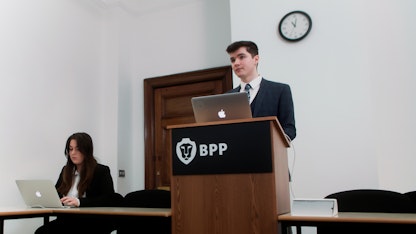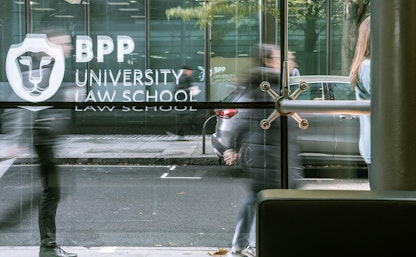My first week on the Barrister Training Course (BTC)

Wondering what it’s like to study the barrister training course? We asked one of our students to share their experience starting barrister training. Read now!
Not sure what to expect from the Barrister Training Course (BTC)?
Starting the BTC is an exciting step towards a rewarding career at the bar. If you’re looking to become a barrister and are wondering what this vocational stage of training is like, this guide is for you.
Read on as BPP student Carla Fischer reflects on her first week on the BTC.
Read our top tips from a BTC tutor.
Learning to use online systems
In the first week, I took some time to familiarise myself with the online systems, such as the Virtual Chambers and BPP Adapt. We were told during classes that these would be important for our learning and exam preparation. I decided to start my preparation for each course on Adapt where the slides present learning materials in a clear and comprehensive way. I also find the multiple-choice questions at the end of each element helpful in revising what I have just learned.
Meeting the Social Impact team (pro bono) and Careers team
During the induction lunch, I had the opportunity to meet members from the Careers and Social Impact teams. The Careers team was particularly supportive on questions about employability, and I recommend looking to the online appointment booking system on the BPP Futures site for personalised meetings with a member of the Careers team. They explained that they offer a variety of services including checking CVs, giving feedback on applications such as scholarships and pupillage, and providing mock interviews.
The Social Impact team explained the different pro bono programmes students can get involved in, such as Streetlaw, Clinics, and the Human Rights blogs. They also talked to us about the different skills that the programmes help you develop. You can volunteer for pro bono projects through the BPP Futures website.
Bar Standards Board syllabus and the White Book
The Bar Standards Board (BSB) syllabus and White Book were provided to us as hard copies by BPP. As the BSB syllabus forms the basis of the civil litigation and evidence exam, I spent some time looking through which areas of the White Book and the civil procedure rules I need to focus on and compared this with the Adapt learning materials.
Visiting the library
On my second day, I visited the library on the BPP Holborn campus and had a short tour of the facilities by the library team. I was able to find spaces within the library for quiet study, and a room where I could collaborate with classmates. The library team also showed me where to find books I needed for research and how to access platforms such as Westlaw through their online catalogue. I was also happy to learn that we get £25 free printing credit which helps greatly as I will regularly print the texts for oral presentations in the submission advocacy course.
Forming a study group
I decided to form a study group with students from my BTC group. Throughout the first week of classes, I realised that the in-class discussions with classmates greatly helped me understand the materials better and that I would benefit from weekly meetings after class to go over the materials and address any outstanding questions. I found a group of students who were also looking to learn in small groups, and these meetings will prepare me well for the upcoming exams.


